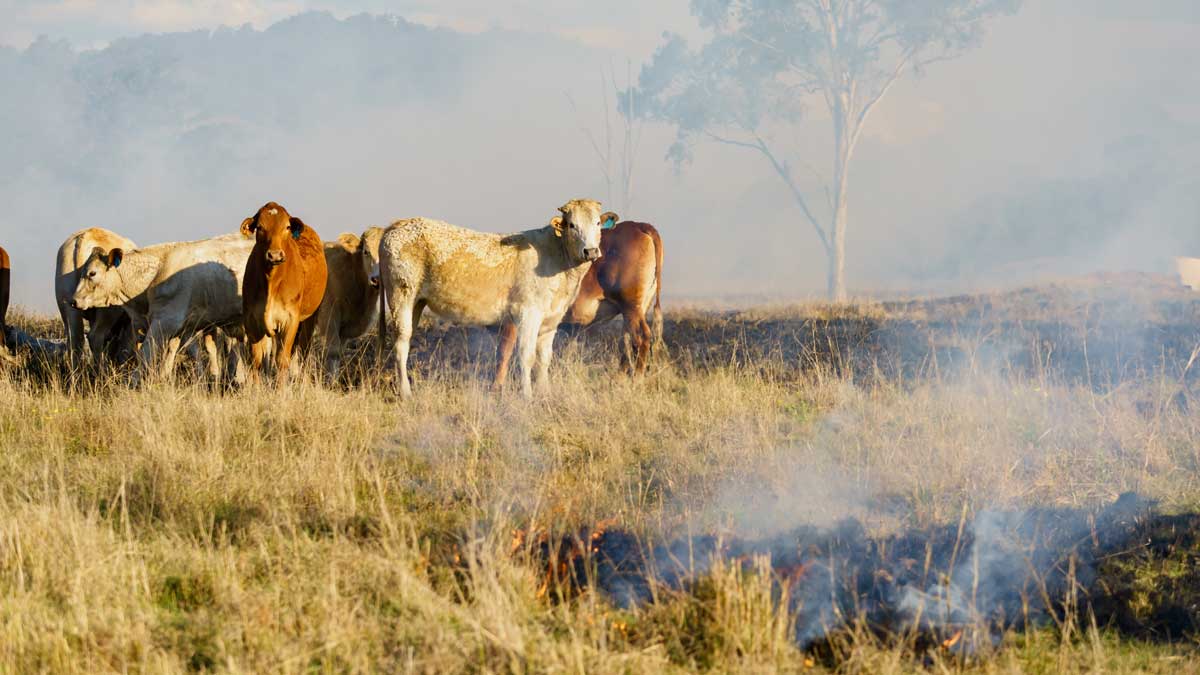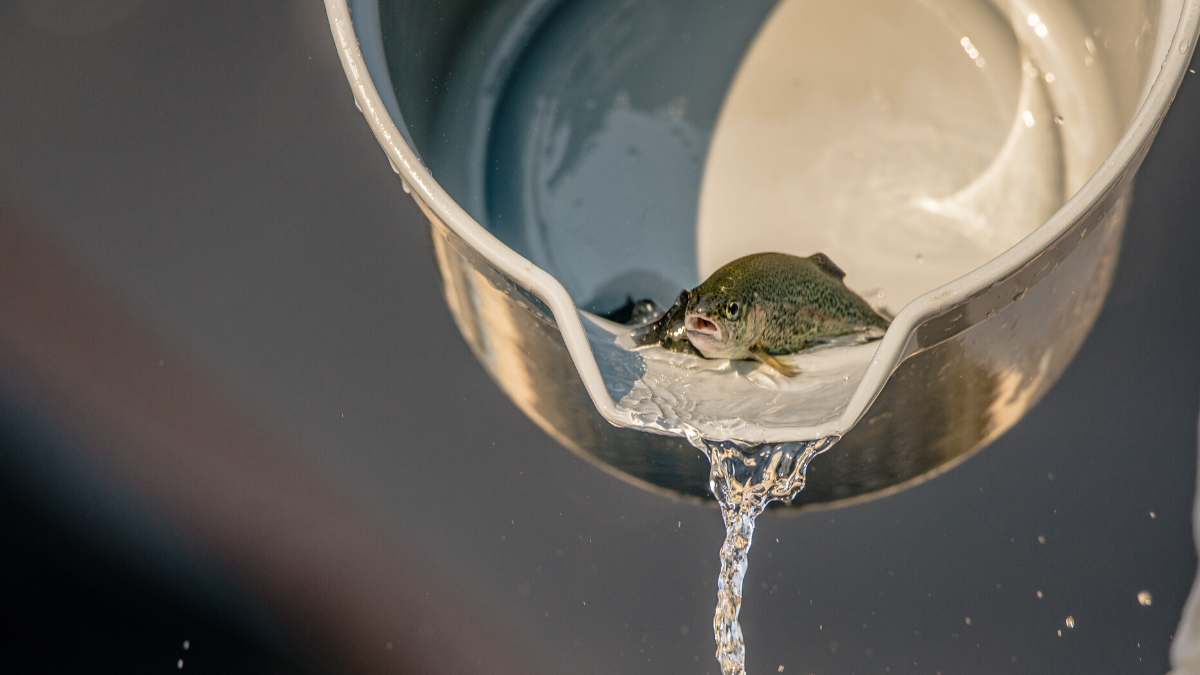Are you looking to improve the efficiency of your cattle? Studies have shown that organic trace minerals outperform inorganic minerals when it comes to cows and their calves. Dr. Anne Koontz, Alltech research scientist, discusses the benefits that organic trace mineral supplements can provide to the calf immune system and average daily gains, as well as how they affect cow fertility and reproductive efficiency in cattle.
The following is an edited transcript of Kara Keeton’s interview with Dr. Anne Koontz. Click below to hear the full audio.
Kara: I'm joined today by Alltech research scientist Dr. Anne Koontz to discuss organic trace minerals in beef cattle. Thank you for joining me today.
Anne: Thank you for having me.
Kara: Anne, trace minerals: are they that secret weapon in our feed that everyone knows exist but we don’t fully understand what they do?
Anne: I think we've always known the importance of trace minerals, but what we're really seeing, with new research that's coming out, is we're diving into things that we didn’t know they were doing for us, and we're seeing some benefits and really putting data to those benefits and understanding them a bit better.
Kara: So, when you're talking about the benefits, what are the minerals specifically that we're talking about? And tell me about some of the benefits that they're providing to our animals.
Anne: Right. When we're talking trace minerals, we're really talking about things like zinc, copper, cobalt, selenium — those minerals that are in very small amounts in our feeds. They get a little bit overlooked. We all toss them in, but really understanding the levels and the forms that are important is something new.
What we see with trace minerals is we've always known that you have to have them there at a certain level, and especially in beef cattle. We've gone, "Well, there are trace minerals in the grass, so I'm not going to worry about it too much," but there are a lot of surveys that are showing that trace minerals in the grass are actually at levels that aren't sufficient to really promote the benefits we know that trace minerals (provide that) are important for us — so immunity, health, metabolism and reproduction, which is really what I focused on recently.
When it comes to reproduction, we know that low amounts of trace minerals in the diets of our cattle can cause problems in both the bulls as well as the cows. When we're talking about cows, we're seeing issues like lower fertility. Pregnancy maintenance rates aren't as good; we get good conception rates, but it's that maintenance of pregnancy that we're finding, if we focus on the minerals, we actually get better pregnancy maintenance.
Kara: So, you're saying that, when you're looking at different animals in the sense of calves versus mama cows versus your bulls, you really have to take that into consideration when you're looking at applying trace minerals to the feed.
Anne: Absolutely. All of your animals are going to need trace minerals, but the levels and the amounts that they need are going to vary depending on their life stage — and especially when you're talking about your cows. They're going to need different levels of minerals when they're pregnant than when they're lactating and than when they're dry and waiting for that next calf to come to the ground. Their mineral needs fluctuate, and we need to take that into account, but always be aware that they do need minerals pretty much all the time.
Kara: How do Alltech's organic trace minerals, Bioplex and Sel-Plex, hold up in the gut in regard to stability, and how are they used in the different animals like you're talking about — different stages of life or production?
Anne: This is another one of those areas that's sort of cutting-edge, and we're really starting to see some new things coming out here, and the stability area is really interesting. What we're finding is that, both in premix situations as well as in the gut of the animals, organic minerals hold their form and shape far better than inorganic minerals. Inorganic minerals are bound to, generally, some sort of an ion, and once they hit the gut, they break apart from that ion, and then they have the ability to bind other things. They can bind up important parts of your diet or other minerals so they're no longer available to the animal, and so the nutrition ultimately becomes less in that diet.
With the organic minerals, they don’t break apart and rebind and that sort of thing, and so, they're more stable and they're more available. When we really look at the availability as far as the bioavailability, what we find is that organic minerals can be as much as 130–200% more available than a sulfate form, and even more than that, from an oxide form of a mineral. So, we're able to use organic minerals at lower levels in the diet but get the same benefits, or use them at the same level and get higher benefits when we might be addressing a subclinical deficiency where we didn’t realize we had a deficiency because we didn’t see any outward effects of it, but the animal has the ability to respond to that slightly more available or slightly higher level of mineral in the diet.
Kara: So how is this used on the farm, and how are farmers embracing this transition, possibly, from using inorganic — which I know has been used for years — to the organic minerals and more natural solutions in their production?
Anne: The feedback from farmers has been incredibly positive, and it mirrors what we've seen in research. We've had research on this from the early '90s in bits and pieces, where we did larger-scale research looking at other issues but we just happened to collect a little bit of reproductive data on the side.
Starting about a year and a half ago, I started pulling out those bits and pieces of reproductive data and putting them all together in a response to a question we had from our sales team. What we found is that we could do this consistently through all these bits and pieces of trials over the last 30 years. Then, when we took those bits and pieces and said, “This is what we've been able to do with reproduction as far as increasing calving rates, increasing pregnancy maintenance and, ultimately, affecting calf production from the cows that were fed those organic trace minerals with higher weaning rates and higher feed liveweight gains,” that was quite exciting to our sales team and to our customers.
When we took it out into the field to the customers, the customers were reporting back exactly the same things we saw in university research trials. They're reporting back higher pregnancy rates, higher conception rates to AI (artificial insemination). They're reporting back that their heifers are reaching puberty earlier, so they're ultimately calving earlier in their life span. So, we're shortening the non-productive time of these animals on the farm, and that's very exciting for us, and it's very exciting for the consumers, because anytime the animal is not productive — if they're slow to cycle back during the breeding season and slow to get pregnant again, or if your heifers aren't reaching maturity until later in their life — you're feeding an animal that's not ultimately bringing you back any money on the farm. So, if we can shorten that time period that we're feeding unproductive animals, we're saving farmers money. We're ultimately getting closer to that beef production gold standard of one calf per cow per year.
Kara: So, saving money, healthier cattle — these are all things farmers are looking for when they're looking at feed, when they're looking at production. What are some other things that you believe, as you continue your research, (you) are going to find in using trace minerals? And not just using — we've always used trace minerals, but using the organic trace minerals, and as you learn more about them — are there other things on the horizon that you're excited about or you think you're going to see?
Anne: There are some things I'm particularly excited (about) and am hoping to start looking at a bit more deeply. One of the things that keeps coming back to us is that, within the beef industry, as I said before, we don’t have an issue with conception rates. Our cattle are incredibly fertile. We get 95% or greater conception rates. What we do see as an issue is early pregnancy loss. There's some data out of Fort Keogh with Dr. Gary in Montana that says 25% of those cattle that conceive lose pregnancy before 28 days. So, it's that very first bit, where we didn’t maybe quite realize they were pregnant, so we thought maybe they didn’t conceive — but what he's saying is, it's not the conception; it's that early pregnancy loss in the first 28 days.
So, what some of the research we have at Alltech has shown is that we're getting better pregnancy rates from AI in beef cattle, and we're getting fewer services per conception in dairy cattle, which is the same way of looking at something, but looking at it from a different angle. So, what I firmly believe is that those two numbers are showing us that we're getting better maintenance of pregnancy during that first 28 days, so I'd really like to get a chance to dive deeper into that and really specifically look at that in some of our research.
The other thing that's particularly interesting to me going forward is taking this to some of our purebred and AI systems and looking at embryo, flushing an embryo quality on that side of the beef industry. We've got some very preliminary data there from the field, where people have used this, that shows we're getting better embryo quality, more transferable embryos and things like that out of these embryo-flushing situations, so I'd like to dive a bit deeper into that and see what we can do on that side as well.
Kara: That's exciting. I know that your area of specialty is with beef cattle. Do you work with dairy cattle as well?
Anne: I do. I actually work with pretty much any species.
Kara: Okay. Well, that's what I was going to ask. What you're learning from beef cattle, and utilizing organic trace minerals in beef cattle — are you also doing research or are there researchers at Alltech looking at this in other livestock?
Anne: There absolutely are. A lot of the research that I was able to find when I started looking into this, and seeing what we already had in our databases, came from the dairy industry, and so, we've seen this consistently in the dairy industry. We can see this consistently in the beef industry. There are some indications that we see something very similar in the swine industry. Poultry is a little bit funny because eggs are a bit different than a pregnancy, but on the pig industry, what we're really seeing is that we're getting heavier birth weights, we're getting more pigs per litter, and those pigs are thriving more after birth when the sows are fed Bioplex minerals.
Kara: Trace minerals (are) maybe not a secret weapon, per se, since we've always used them, but maybe it's the organic and natural direction that is something that's going to make a difference to producers down the road.
Anne: I think that's accurate.
Kara: Okay. Well, thank you so much for joining me today, Anne.
Anne: Thank you for having me. It's been a pleasure.
Kara: This was Dr. Anne Koontz, Alltech research scientist.
Have a question or comment?
































